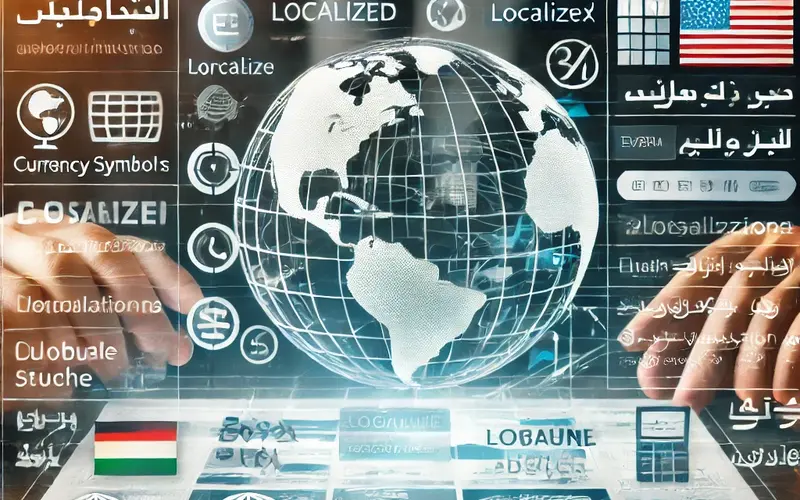Human resource departments are usually a core part of any organization, playing major roles in responsibilities ranging from recruitment and training to performance appraisals, to mentioning legal aspects. Amidst the prevalence of globalization trends in the business world today, the ability of a human resource department to leap over linguistic barriers through communication across languages has turned pivotal. Here’s a blog about some prime reasons why human resources need translation services.
Enhancing Communication in HR
Translation into HR language helps the HR departments communicate effectively to a global workforce. Translation of correct words in the recruitment process to training programs strengthens both internal and external communications for smooth business operations. Human Resource Translation service ensures that all employees, irrespective of their language, can access valuable information and participate fully in the company’s activities.
Recruitment Processes and HR Translation Services
Translation services in HR are also very important in recruitment, which opens up a great pool of international candidates with accurate assessments. Job postings in different languages will facilitate applications from abroad. Translated CVs, application forms, and letters of recommendation enable hiring specialists to objectively assess applicants. Also, the translation of interview questions and feedback makes it a quite transparent process for candidates and companies. It enhances the candidate’s experience, while the company gets to pick better talent. The need to make recruitment more inclusive brings a lot of importance to HR translation services.
Training and Development Programs
HR translation services are also used in HR training and development programs to translate training materials, presentations, and interactive content into different languages. Providing documents and videos in employees’ native languages makes training more effective and comprehensible. Moreover, offering multilingual support on online training platforms facilitates employee access to training and boosts participation rates. Training programs in various languages help employees feel valued and understood, positively impacting their motivation and performance. Translation services also consider cultural differences, creating more inclusive and effective training programs. This aspect of HR translation ensures that all employees, regardless of their linguistic background, can benefit equally from training opportunities.
Legal Documents
Translation of legal documents such as employment contracts, workplace policies, and employee handbooks requires accuracy for the protection of employee rights and adherence to the law by the company. Inaccurate translation can lead to a number of legal issues and disputes. Human Resource translation services ensure that all legal documentation is correctly understood by all staff to minimize risks of miscommunication and further legal complications.
Professional Translation Services
Get your documents translated and certified by a professional translator in 120+ languages with 24 hour delivery.
Get a QuotePerformance Evaluation and Feedback
HR translation is invaluable in performance evaluation processes, helping to assess employees’ job performance and provide feedback. In global companies, conducting effective performance measurements for employees speaking different languages is possible with translation services. Some benefits include:
- Clear Feedback: Accurate translations of performance evaluation reports and feedback ensure employees understand their strengths and areas for improvement, aiding their development.
- Cultural Sensitivity: Professional translators consider cultural contexts, ensuring feedback is correctly understood across cultures.
- Fair Evaluation: HR translation services ensure all employees are evaluated equally, reinforcing a sense of fairness, and increasing employee loyalty.
- Goal Clarity: Translating performance goals ensures all employees clearly understand their targets.
- Identifying Training Needs: Accurate translation of evaluation reports helps identify employees’ development areas and training needs, enabling HR to create appropriate development plans.
- Boosting Morale: Clear and accurate feedback through translation services makes employees feel valued and supported, increasing motivation and morale.
- Overcoming Language Barriers: Translation services facilitate effective participation in performance evaluations for employees speaking different languages, strengthening internal communication.
- Aligning with Business Goals: Accurate translation of evaluation outcomes and feedback ensures employees align with company objectives, positively impacting overall performance.
Translation services help overcome language barriers in performance evaluations, supporting employee development, and helping the company achieve its goals. This integral part of HR translation ensures that performance feedback is communicated effectively, fostering an environment of continuous improvement and growth.
Promoting Cultural Diversity and Inclusion
Human translation in HR provides an easy way to communicate across languages and cultures, which includes employees and those whom they are working. This would also mean a sense of worthiness and understanding, which also encourages the adoption of an inclusive environment that acknowledges cultural diversity at work. Automatically, this leads to the creation of a good and productive environment suitable for all staff.
HR translation services: Benefits of Communication with Global Business Partners
Effective communication with suppliers, customers, and other business partners strengthens business relationships. HR translation services ensure agreements and business processes are accurately managed with global partners. This ensures that all parties are on the same page, thus enhancing cooperation and mutual understanding.
Multilingual Support in HR Technologies
One of the most sought-after benefits for any organization with a global workforce is making their HR software and platforms available in multiple languages. Translation in human resources further extends the effective use of such technologies and amplifies overall employee productivity. Multilingual support means employees at all levels can efficiently use the HR systems, no matter what their language is, which ultimately contributes to increased overall operational efficiency.
Frequently Asked Questions
- What types of documents require translation services?
Many documents, including CVs, application forms, employment contracts, training materials, and performance reports, require translation services. HR translation ensures these documents are accessible to all employees.
- What are the costs of translation services?
Costs vary based on the type, length, and language combination of the document. Typically, pricing is done per word or page. Investing in the services is crucial for maintaining effective communication and compliance.
- What is a sworn translator and why are they needed?
A sworn translator is authorized to provide accurate and complete translations of official documents, ensuring their validity and correctness. Using sworn translators for HR translation ensures legal documents are accurately translated and recognized.
This blog highlights the importance of HR translation services for HR departments and how they contribute to HR processes. We hope this information helps you understand the necessity of HR translation services in HR. Companies can foster a more inclusive, effective, and legally compliant work environment by integrating HR translation into their processes.
 Rana Maalouf
Rana Maalouf

